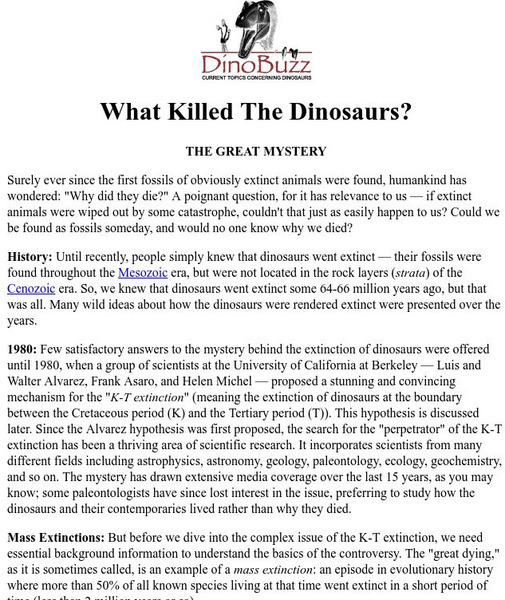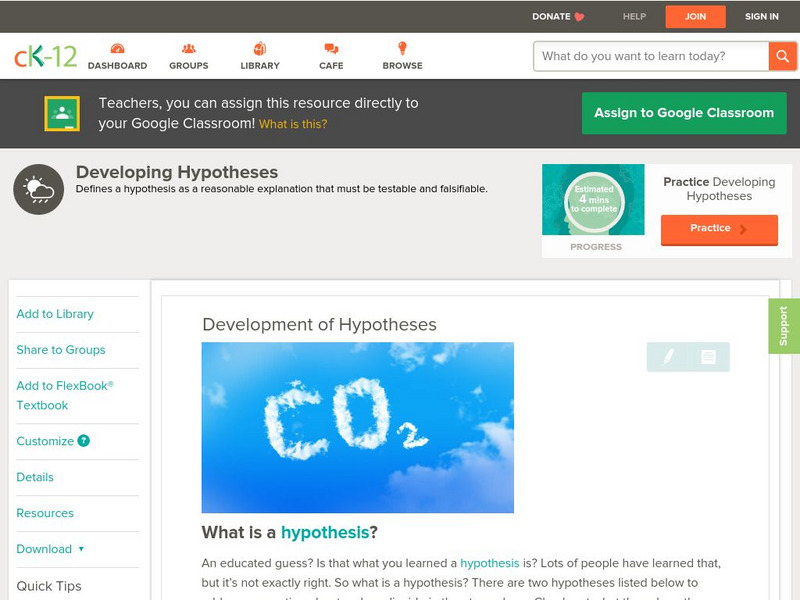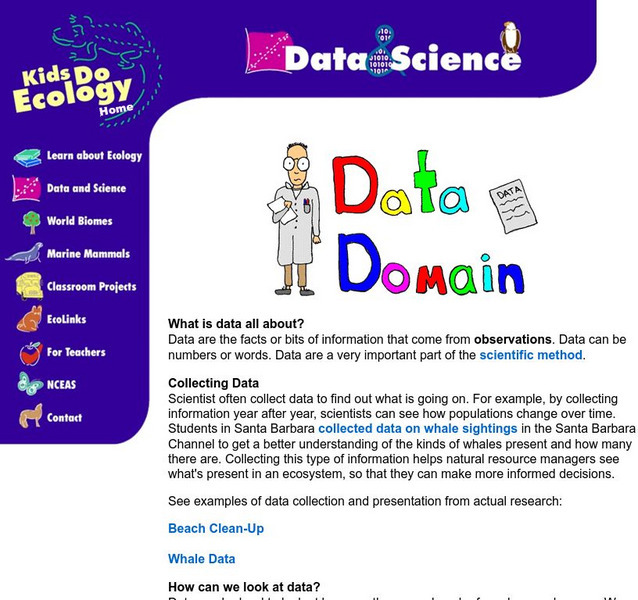Curated OER
Detecting Magnetic Materials in "Martian" Soil
Pupils simulate some of the Pathfinder experiments by devising methods of collecting and measuring magnetic substances in pseudo-Martian soil. The efficiency of each of the methods used to collect materials is evaluated in this...
Curated OER
Water Displacement
Learners formulate a hypothesis using critical thinking skills. They use an orange to examine the displacement of water as the orange sinks or floats.
Curated OER
Designing a Scientific Study
Students define an exploration question or hypothesis and design a scientific study to answer it. They conduct the experiment.
Curated OER
Correlating Atmospheric Data Lesson Plan
Pupils make and test hypotheses about atmospheric data collected aboard the NOAA ship Ronald H. Brown research cruise.
City University of New York
Scientific Method and Probability: Interactive Activity
This interactive lesson begins with the basics and carries through to methods of data analysis, all interactively. Supporting material is excellent.
University of California
Ucmp: What Killed the Dinosaurs?
This UC Berkeley site extensively covers the death of the dinosaurs. It includes history, theories, invalid hypotheses, and current arguments.
TeachEngineering
Teach Engineering: Factors Affecting Friction
In this activity, students use previous knowledge about friction to formulate hypotheses concerning the effects of weight and contact area on the amount of friction between two surfaces. In the Associated Activities (Does Weight Matter?...
Science Education Resource Center at Carleton College
Serc: Boiling Water With Ice: Effect of Pressure on the Boiling Point of Water
In this activity, which is a discrepant event with guided inquiry, the teacher will go through the steps of boiling water with ice. Through the students telling and recording WHAT is happening, the teacher is showing the students what...
National Health Museum
Access Excellence: Writing Hypotheses
This informative page describes the true purposes of the hypothesis and how it should be used. Not only shows how they are written, but also helps students figure out the dependent versus independent variable.
University of Washington
Washington U: Model for Conducting Scientific Research
This page outlines the scientific method, step by step.
Read Works
Read Works: Canine Courage
[Free Registration/Login Required] An informational text about rescue dogs and how they are better equipped than humans for situations like the World Trade Center collapse on September 11, 2001. A question sheet is available to help...
CK-12 Foundation
Ck 12: Earth Science: Development of Hypotheses
[Free Registration/Login may be required to access all resource tools.] How to recognize and make good hypotheses.
CK-12 Foundation
Ck 12: Earth Science: Development of Hypotheses
[Free Registration/Login may be required to access all resource tools.] How to recognize and make good hypotheses.
CK-12 Foundation
Ck 12: Earth Science: Scientific Community and Research Tools Study Guide
[Free Registration/Login may be required to access all resource tools.] Discusses the steps involved in presenting a hypothesis to the scientific community and what happens during and after peer review. Explains what a scientific model...
McGraw Hill
Glencoe Publishing: Practicing Scientific Processes
This site from Glencoe Publishing not only explains hypothesis but also tells how to design an experiment to test your hypothesis. Includes the difficult task of "Separating and controlling variables."
National Center for Ecological Analysis and Synthesis, University of California Santa Barbara
Nceas: What Are Data?
This site from NCEAS answers many questions about data. You can also learn about data, tables, and types of graphs in this informative site.















